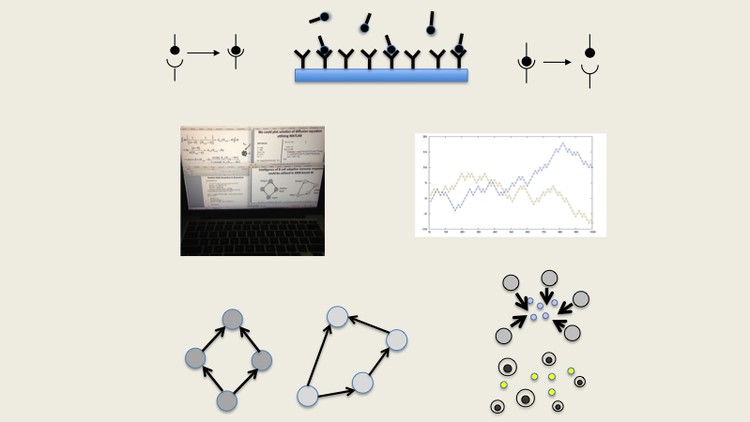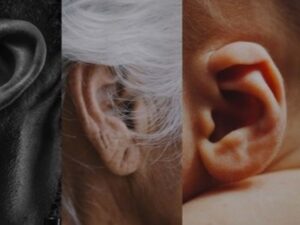Theoretical and Computational Methods for Biology
- Description
- Curriculum
- FAQ
- Reviews
Generation of large amount of data has posed challenges in modeling biological and immunological processes. There is a clear need for mathematical and computational tools that are capable of analyzing large amount of biological information. Ordinary and partial differential equations, Monte Carlo simulations, agent-based models are emerging as powerful methods for studying biological problems. This course covers some basics of these mathematical and computational methods and their biomedical/bioengineering/biotechnology applications. We also discuss data analysis based on statistical approaches such as machine learning/AI. Such computational methods allow us to carry out important classification tasks in biological and biomedical sciences.
In lecture 1, you will be introduced to ordinary differential equations (ODEs) as applied in quantitative study of biological processes. We will emphasize study of biological kinetics and biological data analysis. Among applications, we will mention kinetic parameters in receptor-ligand binding and precision medicine. We will also briefly discuss dynamical systems analysis for ODEs.
In lecture 2, you will be introduced to partial differential equations (PDEs) as applied in quantitative study of biological processes. We will emphasize study of diffusion equation and biological data analysis. We will also discuss application problems such as selecting effective antibiotics (for bacterial infection in a given patient) utilizing disk diffusion methods.
In lecture 3, you will be introduced to kinetic Monte Carlo methods through random walk and directed walk simulations. Lectures will cover computer implementations of simulation algorithms and computer programs (C; random walk simulation in MATLAB and python). Some discussion on random numbers and parallel computation.
In lecture 4, we will discuss computational modeling of infectious diseases (e.g. hypermigration of immune cells in the context of COVID-19). We will also briefly mention about biological pathway modeling.
In lecture 5, you will be introduced to machine learning and artificial intelligence for solving biological/immunological problems. We will emphasize artificial neural network (ANN) based methods for artificial intelligence. Applications will be discussed such as vaccine epitope prediction/design utilizing various machine learning/AI based methods and software.
-
1Ordinary Differential Equation (ODE) Based Mathematical ModelingVideo lesson
In this lecture, students / participants will be introduced to ordinary differential equations (ODEs) as applied in quantitative study of biological processes. We will emphasize study of biological kinetics and biological data analysis. Among applications, we will mention kinetic parameter estimation for receptor-ligand binding and precision medicine. We will also briefly mention dynamical systems analysis for ODEs.
-
2Partial Differential Equation (PDE) Based Mathematical ModelingVideo lesson
In this lecture, students / participants will be introduced to partial differential equations (PDEs) as applied in quantitative study of biological processes. We will emphasize study of diffusion equation and biological data analysis. We will also discuss application problems such as selecting effective antibiotics (for bacterial infection in a given patient) utilizing disk diffusion methods.
-
3Kinetic Monte Carlo Simulations I (Basic theory and simulation codes)Video lesson
In this lecture, students / participants will be introduced to kinetic Monte Carlo methods through random walk and directed walk simulations. Lectures will cover computer implementations of simulation algorithms and computer programs (C, MATLAB and python). Some discussion on random numbers and parallel computation.
-
4Lecture 4: Kinetic Monte Carlo Simulations II (Biological problem solving)Video lesson
In this lecture, we will discuss computational modeling of infectious diseases (e.g. hypermigration of immune cells in the context of COVID-19). We will also briefly mention about biological pathway modeling.






